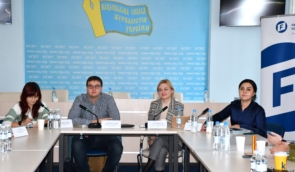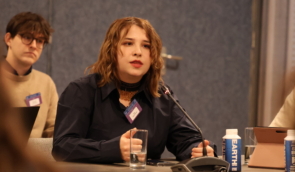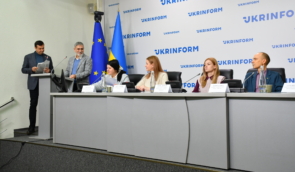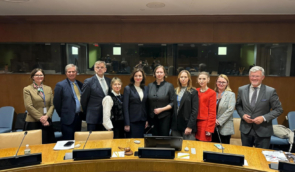Since the beginning of 2020, human rights defenders have recorded 74 cases of persecution of activists
In the first nine months of 2020, human rights defenders have recorded 74 cases of attacks and pressure on civil activists in the government-controlled territory of Ukraine. The most risky areas of activism are still opposing corruption, defending the rights of LBGTIQ people, and environmental protection.

This was discussed at the press conference titled Who Persecutes Activists in 2020 and for What, which took place on October 22 in Kyiv. Human rights advocates also presented a monitoring report on the persecution of civil activists and human rights defenders since the beginning of 2020, prepared by ZMINA Human Rights Centre as a part of the EU-funded project Increasing the Role and Protection of Human Rights Defenders in Ukraine.
According to Anastasia Moskvychova, a researcher at ZMINA Human Rights Centre, of all the recorded cases, the highest number involved physical attacks on activists (18), intimidation (14) and destruction or damage of their property (13). Kyiv and Odesa Region are still the “leaders” in terms of the number of incidents: they had 34 and 11 cases, respectively. The third place is shared by Kyiv and Dnipropetrovsk Regions, with 6 incidents each.
In the past quarter of the year, the researchers have observed a sharp increase in aggression from right-wing radical groups against LGBTIQ activists in the regions, particularly in Odesa, Kharkiv and Zaporizhia, in response to human rights and educational events held in these cities. The opponents attacked community centers for LGBTIQ, damaged property, and tried to disrupt pride events in Zaporizhia and Odesa. During the Odesa Pride, at least 16 people became victims.
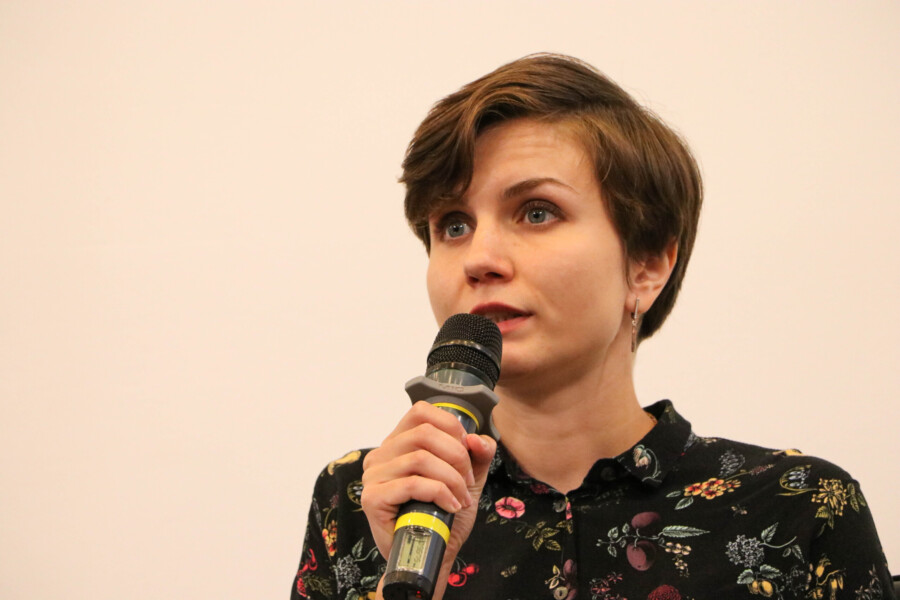 Anastasia Moskvychova
Anastasia MoskvychovaMeanwhile, the Verkhovna Rada continues to register a number of bills that threaten the civil society, including Bill 3916, which categorizes “propaganda of homosexialism or transgenderism” as a misdemeanor and proposes to remove the term “gender” from Ukrainian legislation, and Bill 3917, which introduces responsibility for “propaganda of homosexualism and transgenderism.”
“To our great regret, in September, the Verkhovna Rada rejected a legislative initiative to introduce changes to the Criminal Code of Ukraine regarding responsibility for committing crimes motivated by intolerance, even without allowing it to undergo the first reading. These changes are very necessary for the Ukrainian society. The situation with investigating hate crimes committed for homophobic or transphobic reasons remains extremely unsatisfactory, and investigators consistently ignore these motives in crimes, categorizing them mostly as ordinary hooliganism or another crime without aggravating circumstances,” commented Olena Vynohradova, a legal analyst at ZMINA Human Rights Centre.
Among the most high-profile incidents recorded by ZMINA in the third quarter of 2020 was the arson of the house of Vitaliy Shabunin, the chairman of the board of the Anti-Corruption Action Centre. The activist’s parents were sleeping in the house at the time. Anti-Corruption Action Centre views the incident as an attempted murder of Shabunin and his family.
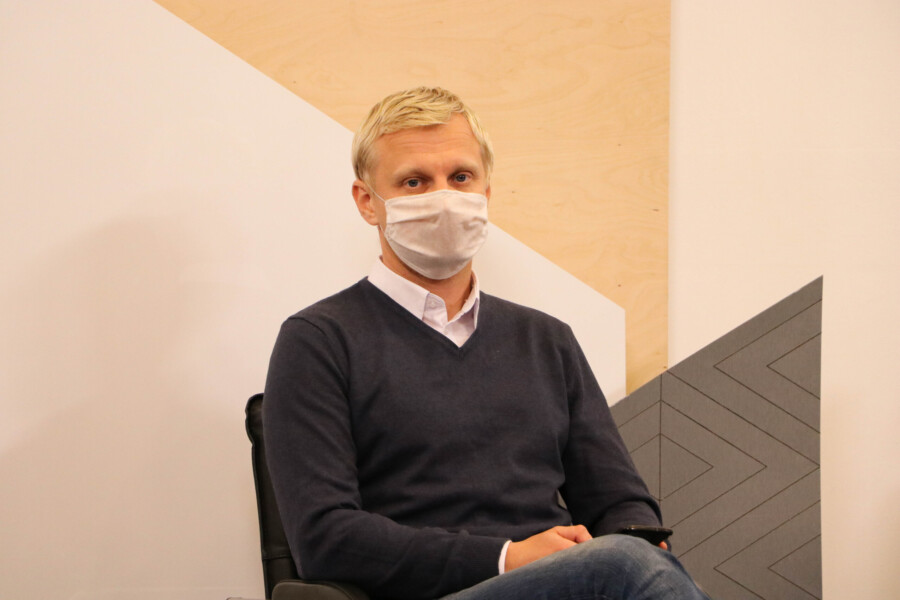 Vitaliy Shabunin
Vitaliy Shabunin“It has been three months since the premeditated arson of my house, which has already been confirmed by forensic experts. Employees of the powerful Minister Avakov have still not named either those who ordered it or those who committed it. The nighttime arson was conducted in a way that left a minimal chance to save my parents who were inside. Despite the presence of people in the house, the police registered proceedings on intentional damage of property by arson. I disagree with this categorization, because it was a direct attempt on my family members’ lives,” commented Shabunin.
In addition, trends observed in the context of persecution for several quarters now include attempts to discredit activists. In July, in Kotsiubynske in Kyiv Region, unidentified individuals installed a “memorial plaque” on the house of Iryna Fedoriv, the editor-in-chief of the CHESNO website, accusing her of alleged involvement in corrupt schemes while buying an apartment. Fedoriv reported the incident to the police and wrote a statement about the crime. The police later sent her a letter in which they indicated that they did not see any social danger in the installation of the plaque due to its insignificance, so they did not open a case. And this was not the first attempt to discredit Fedoriv and put pressure on her.
A factor that should be noted separately in the third quarter of this year in the context of civil activism was the election campaign. Among other candidates, activists who have been attacked or otherwise pressured are running for office in the local elections scheduled for October 25, 2020. “In a number of cases, civil activists used their personal example to show that they have not been intimidated, on the contrary, they are prepared to run for office and actively participate in solving the problems of their communities and regions,” noted Tetiana Pechonchyk, the chairwoman of the board of ZMINA Human Rights Centre.
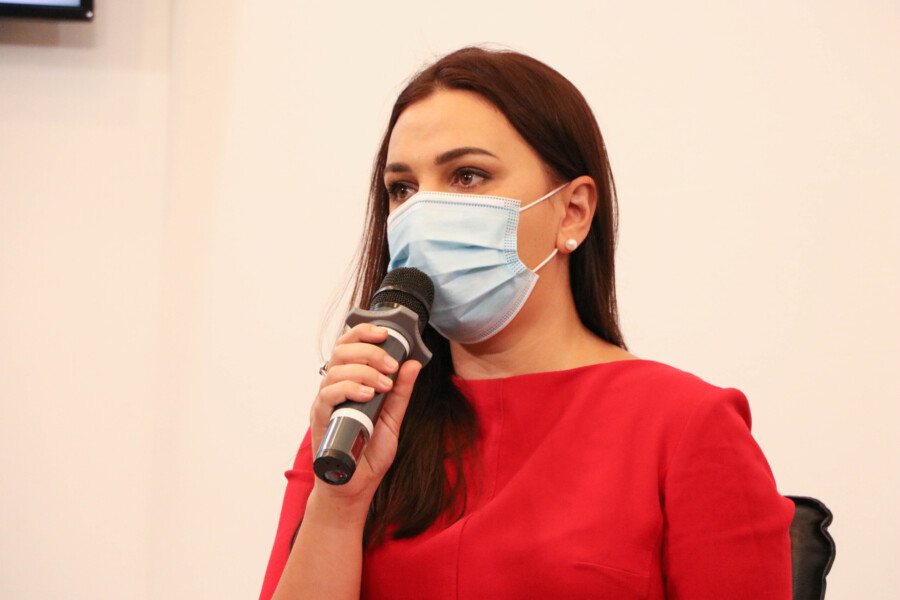 Tetiana Pechonchyk
Tetiana PechonchykActivists are running as representatives of different political parties, particularly Fatherland, Golos, Hromadianska Pozytsiya, Za Maybutnie, Svoboda, Sluha Narodu, UDAR, Yevropeyska Solidarnist, etc. They are also running as representatives of local political forces and as independents.
“So, despite the threats, surveillance, attacks, discreditation campaigns and other forms of pressure, many civil activists not only continued their activities, but also decided to run for local self-government bodies and take responsibility for the development of their villages and cities,” added Pechonchyk.
Background information: The Increasing the Role and Protection of Human Rights Defenders in Ukraine project is implemented by the ZMINA Human Rights Centre in partnership with the Netherlands Helsinki Committee with financial support by the European Union. The project focuses on legal and operational protection and support for human rights defenders and anti- corruption activists in Ukraine, on supporting the positive role of human rights defenders in society and establishing connections between them, on increasing the number of effective investigations of attacks on human rights advocates and activists, etc. The project is implemented from 2019 until 2022.
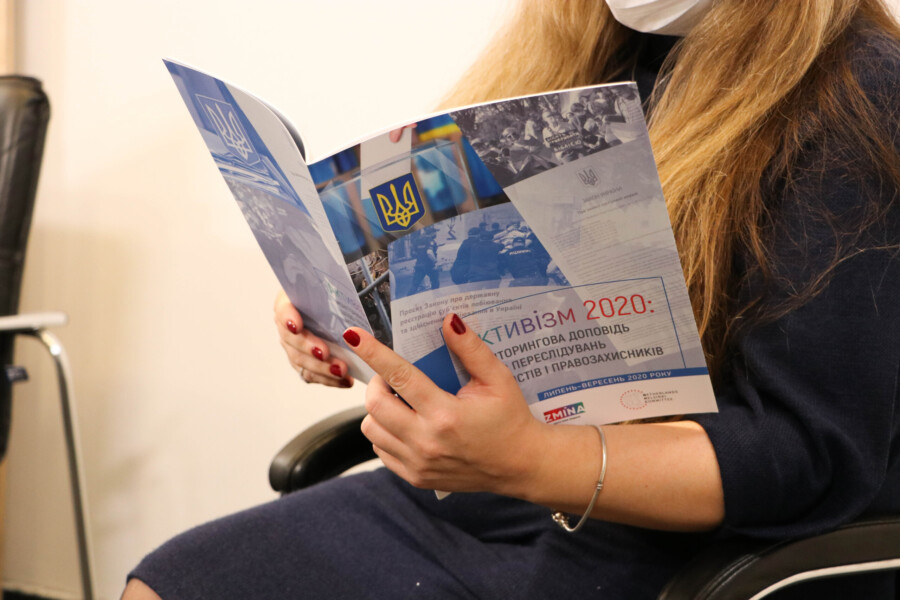
The report is available in Ukrainian and English.
Video from the press conference is available in Ukrainian and English.
If you have found a spelling error, please, notify us by selecting that text and pressing Ctrl+Enter.

